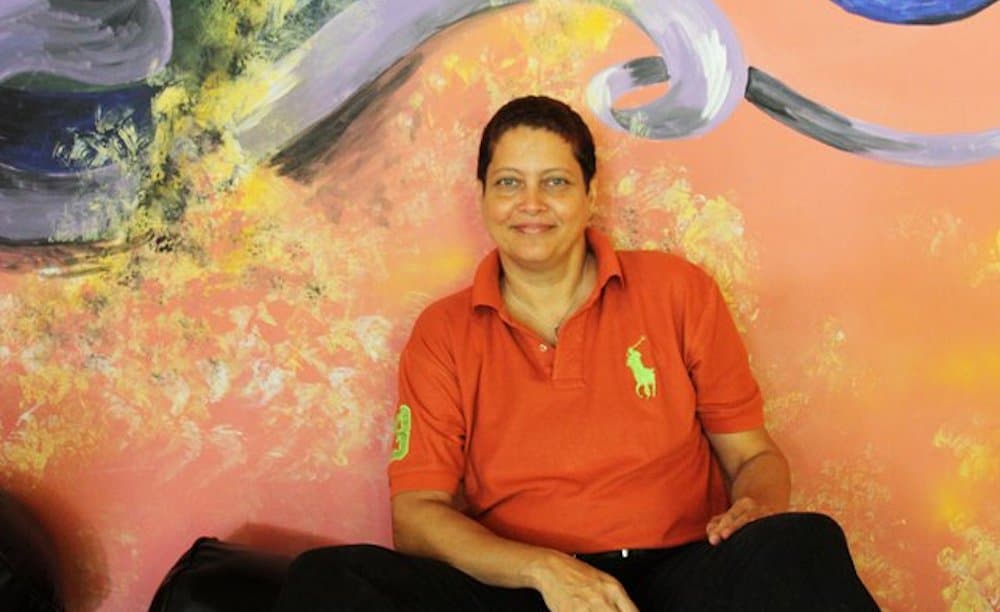The case against Sri Lanka was brought by LGBT+ rights activist Rosanna Flamer-Caldera. (Facebook/ Rosanna Flamer-Caldera)
The UN has become the first international law body to declare that criminalising lesbian sex is a violation of human rights.
On Wednesday, 23 March, a UN committee, the Convention on the Elimination of All Forms of Discrimination against Women (CEDAW), ruled against Sri Lanka’s ban on lesbian sex, meaning that for the first time, such bans are against international law.
In Sri Lanka, the colonial-era section 365 of the penal code bans “carnal intercourse against the order of nature”, and the crime can be punished by up to 10 years in prison, plus a fine.
The same section of the code also bans “any act of gross indecency” with up to two years in prison, plus a fine.
While it is often assumed that most laws criminalising homosexuality affect sex between men, Sri Lanka is one of 34 countries which also criminalised same-sex sexual activity between women.
The case was brought to the CEDAW by lesbian and LGBT+ rights activist Rosanna Flamer-Caldera, who argued that the law violated her human right to live free from discrimination.
The UN committee ruled that “the criminalisation of same-sex sexual activity between women in Sri Lanka has meant that [Flamer-Caldera] has had difficulties with finding a partner, has to hide her relations and runs the risk of being investigated and prosecuted in this context”.
It found that Sri Lanka had breached Flamer-Caldera’s human rights, and that the country had “failed to protect [her] against, and have partaken in, harassment, abuse and threats against the author’s work promoting the rights of lesbian, gay, bisexual, transgender and intersex community in Sri Lanka”.
The CEDAW recommended that Sri Lanka specifically protect and compensate Flamer-Caldera, and “decriminalise consensual same-sex sexual conduct between women having passed the age of consent”.
It also recommended that the country bring in discrimination protections for the LGBT+ community, collect hate crime statistics, and provide law enforcement with training on respecting the human rights of the LGBT+ community.
Sri Lanka now has six months to provide a written response, detailing how it will act on the committee’s recommendations.
The landmark ruling by the UN committee has global implications, and means that any government criminalising lesbian sex is violating international law.
According to the Sri Lankan daily paper The Daily FT, Flamer-Caldera said: “I am so ecstatic to hear of this decision as it is a major win for all of us,.
“The Sri Lankan Government has ratified CEDAW, and this is therefore further encouragement for them to repeal these discriminatory laws and free us from the stigma and violence caused by criminalisation.”
“This sends a strong message to Sri Lanka’s policymakers, as well as the international community, that ensuring the rights and equal treatment of all citizens – including LGBTIQ persons – and removing archaic, discriminatory laws, is foremost.”
Téa Braun, chief executive the Human Dignity Trust which supported Flamer-Caldera is her case, added: “This decision is significant for millions of criminalised lesbian and bisexual women around the world. Most of the… countries that currently criminalise same-sex intimacy between women have voluntarily signed up to the convention and are now in clear and blatant violation of its binding legal obligations.”
